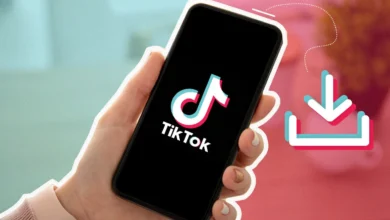
Gain an Entire IT Department: The Strategic Advantage of Outsourcing for Small Businesses
As a small business owner, your to-do list is endless. You’re juggling sales, operations, customer service, and long-term strategy. The last thing you need is another distraction, but technology issues often demand immediate attention. A server goes down, an employee can’t access a critical file, or worse, you get a notification of a potential security breach. These aren’t just minor annoyances; they are significant roadblocks to productivity and growth.
If you’re constantly worried about cybersecurity threats or frustrated by the high cost and complexity of hiring an in-house IT expert, you’re not alone. These aren’t signs of failure. They are common growing pains that signal your business is ready for a more strategic approach to technology.
For a growing number of companies, that strategic shift is IT outsourcing. It’s a move that transforms technology from a source of stress into a competitive advantage. In fact, it’s a well-established strategy; according to a survey by Clutch, 37% of small businesses outsource at least one business process, with IT services being one of the most common functions. They do this to gain expertise, improve efficiency, and reclaim their focus on what they do best: running their business.
Table of Contents
Beyond Break-Fix: What Outsourcing IT Really Means for a Small Business
When many business owners think of IT support, they picture the traditional “break-fix” model: something breaks, you call for help, and you pay to get it fixed. This approach is purely reactive. It means you only address technology when it fails, leading to costly downtime, lost productivity, and constant frustration.
Modern IT outsourcing operates on a completely different philosophy: the managed services model. This is a proactive partnership designed to prevent problems before they happen. Your outsourced partner doesn’t just wait for a call; they continuously monitor your systems, manage security updates, optimize performance, and align your technology with your long-term business goals.
This strategic shift turns IT from a reactive expense into a proactive asset. Instead of just fixing problems, the goal is to gain a partner that provides a complete roadmap for success, ensuring your technology actively supports your business goals. For many small businesses, this is achieved through comprehensive IT outsourcing for small businesses. This partnership answers the critical question: “How does outsourcing turn IT from a reactive cost center into a proactive business asset?” The answer is by focusing on prevention, strategy, and alignment.
The 5 Core Advantages of Outsourcing Your IT
1. Reduce Costs and Gain Predictable IT Spending
For any small business owner, the bottom line is paramount. This often leads to a crucial question: “Is outsourcing IT really cheaper than hiring someone in-house?” When you look at the total cost of ownership, the answer is almost always yes.
Consider the fully-loaded cost of a single, mid-level IT employee. You have their salary, but you also have to account for benefits, payroll taxes, insurance, vacation time, and sick leave. On top of that, you need to pay for their ongoing training to keep their skills current, plus the expensive software and tools required for professional-grade network monitoring and security.
In contrast, an outsourced IT partner provides access to an entire team of experts for a flat, predictable monthly fee. This model eliminates surprise repair bills and makes budgeting simple and reliable. This financial benefit is a primary driver for many companies.
2. Gain Instant Access to Enterprise-Level Expertise
The world of technology is incredibly complex and constantly changing. A single in-house IT generalist, no matter how talented, cannot be an expert in everything. They might be great at day-to-day troubleshooting but lack the deep knowledge required for advanced cybersecurity, cloud architecture, or regulatory compliance.
When you outsource your IT, you aren’t just hiring one person; you’re gaining access to an entire team of specialists. This team includes experts dedicated to specific domains:
- Cybersecurity Analysts who proactively hunt for threats.
- Cloud Engineers who can optimize your cloud infrastructure for cost and performance.
- Network Architects who ensure your systems are reliable and fast.
- Compliance Specialists who understand the requirements of regulations like HIPAA or PCI DSS.
This collective expertise ensures you are leveraging the most secure, efficient, and modern technologies available. It’s like having a multi-million dollar IT department on your side for a fraction of the cost, giving your small business the same technological capabilities as a large enterprise.
3. Fortify Your Cybersecurity Defenses
Cybersecurity is no longer a problem reserved for large corporations. Small businesses are increasingly seen as soft targets by cybercriminals because they often lack robust security measures. The consequences of a breach—from financial loss to reputational damage—can be devastating.
An outsourced IT partner makes enterprise-grade security accessible and affordable. They provide a multi-layered defense strategy that a small business could rarely implement on its own. This includes 24/7 network monitoring, advanced threat detection tools, managed firewalls, and employee security awareness training. They handle the complex and time-consuming work of patching vulnerabilities, managing antivirus software, and developing an incident response plan so you’re prepared if an attack occurs.
Given the rising tide of digital threats, it’s no surprise that a significant number of organizations outsource their cybersecurity functions to better protect their assets. Outsourcing is one of the most effective steps you can take to fortify your business against cyberattacks.
4. Reclaim Your Focus on Core Business Growth
How much time do you or your employees lose each week dealing with technology problems? Every minute spent troubleshooting a printer, resetting a password, or dealing with a slow computer is a minute not spent on sales, marketing, product development, or customer service. These small interruptions add up, draining productivity and pulling your team away from revenue-generating activities.
Outsourcing your IT allows you to delegate the entire “IT headache” to a team of experts. With proactive maintenance ensuring high uptime and a dedicated help desk to resolve issues quickly, your team can remain focused and productive. This move toward greater operational effectiveness is a key motivator for small business owners; one survey found that 27% of small business owners outsource to enhance efficiency, with IT being the most outsourced function. Freeing up this time and mental energy allows you to concentrate on the strategic initiatives that will truly grow your business.
5. Scale Your Business with Unmatched Flexibility
As your business grows, your technology needs will inevitably change. You’ll hire more employees, potentially open new locations, and adopt new software. A key question for any ambitious owner is, “Can my IT infrastructure keep up with my growth?”
With an in-house model, scaling can be slow and expensive. You have to go through the lengthy process of recruiting, hiring, and training new IT staff to meet increased demand. If you need to downsize, you’re faced with difficult decisions about layoffs.
An outsourced IT model offers unparalleled flexibility. A managed services provider can scale your support services up or down seamlessly. Onboarding a new group of employees or setting up a new office becomes a simple, streamlined process. Your IT partner works with you to anticipate future needs, ensuring your technology roadmap is prepared for your next stage of growth long before it becomes a limitation.
What IT Functions Can a Small Business Outsource?
IT outsourcing is not an all-or-nothing proposition, but a comprehensive managed services plan typically covers every aspect of your business technology. This ensures all your systems work together harmoniously. Here are the core functions you can delegate to a trusted partner:
- Help Desk & Support: Provides 24/7 technical support for your employees, handling everything from password resets to software issues so they can stay productive.
- Network & Infrastructure Management: Includes proactive monitoring and maintenance of your servers, Wi-Fi networks, routers, and other core systems to ensure reliability and performance.
- Cybersecurity Services: A complete security suite covering threat monitoring, firewall and antivirus management, security policy enforcement, and employee training.
- Cloud Services: Management of your cloud applications (like Microsoft 356 or Google Workspace), virtual desktops, cloud servers, and other cloud-based infrastructure.
- Data Backup & Disaster Recovery: Implements and manages automated backup solutions and creates a clear plan to restore operations quickly in the event of data loss, system failure, or a natural disaster.
- IT Strategy & Consulting: High-level guidance from a virtual CIO (vCIO) to help you create a technology budget, plan for future investments, and ensure your IT strategy supports your overall business objectives.
Making the Right Choice: Finding a True IT Partner
Choosing an IT provider is a major decision. The goal isn’t just to find a vendor who fixes things; it’s to find a strategic partner who is invested in your success. A true partner will take the time to understand your business, your challenges, and your goals before recommending any solutions.
When evaluating potential providers, look for these key qualities:
- A Proven Track Record: Ask for case studies and client testimonials, especially from businesses in your industry.
- A Strategic Approach: They should start the conversation by asking about your business challenges, not just by listing their services.
- Transparent Pricing: You should receive a clear, easy-to-understand proposal with no hidden fees.
- Client Satisfaction Guarantees: A provider who is confident in the value they deliver will stand behind their service with a clear guarantee.
Conclusion
For a growing small business, outsourcing IT is more than just a cost-cutting measure—it’s a powerful strategic decision. It’s about trading unpredictable expenses and constant distractions for a stable, secure, and highly capable technology foundation.
By partnering with an expert provider, you gain the collective knowledge of an entire IT department, fortify your defenses against cyber threats, and achieve predictable technology spending. Most importantly, you free yourself and your team to focus on the core mission of your business. You’re not just offloading a task; you are making a strategic investment in a scalable, secure, and successful future.








